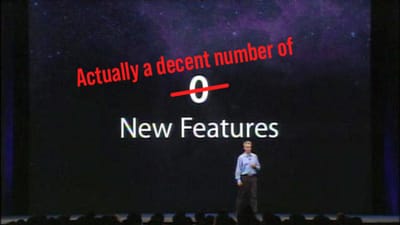On Chrome as the New Internet Explorer 6
This is a comparison that always gets people up in arms. IE6 is largely considered to be one of the worst web browsers of all time, in no small part due to it’s wider implications to browser-specific websites. As brought up recently by The Verge, Google’s Chrome browser is starting to show signs of the same bad behavior. Here’s what they said:
While Google championed web standards that worked across many different browsers back in the early days of Chrome, more recently its own services often ignore standards and force people to use Chrome.
Yes, after starting life aimed at being the most standards-compliant browser out there, Google has drifted far from that original goal. Chrome used to use WebKit as its rendering engine, which is the same engine Safari uses and is maintained by dozens of major tech giants like Apple, Adobe, Samsung, Intel, and even Google themselves, but in 2013 switched to their own rendering engine called Blink. That’s not bad in and of itself, as Firefox uses its own rendering engine and people are just fine with that, but it’s how Google has acted outside of the browser itself that is troubling.
As The Verge mentions, there are numerous Google products that simply do not work in any browser besides Chrome.
Google Meet, Allo, YouTube TV, Google Earth, and YouTube Studio Beta all block Windows 10’s default browser, Microsoft Edge, from accessing them and they all point users to download Chrome instead.
The same holds true for trying to access those pages via Safari on a Mac or iOS devices, as well as Firefox. If you want to use Google’s apps, you had better be using their browser. Even using Opera or Vivaldi, both of which use Chromium as their back end, are blocked from numerous Google sites (or at least have limited functionality). As Vivaldi CEO Jon von Tetzchner recently wrote:
Now, we are making the Vivaldi browser. It is based on Chromium, an open-source project, led by Google and built on WebKit and KHTML. Using Google’s services should not call for any issues, but sadly, the reality is different. We still have to hide our identity when visiting services such as Google Docs.
This really amplifies the idea to me that Google is not doing this because standards bodies are too slow to adopt new standards, but that they actively want their users to use Chrome.
Now you might say that it’s not unreasonable for Google to make their own services work best in their own browser, and I wouldn’t fight you too hard on that. I would argue there is a difference between “working best in Chrome” and “blocking everything else entirely,” but the bigger problem is that this “Chrome first” attitude is moving beyond Google.
[O]ther web companies have started to reveal that their websites work best in Chrome. Groupon, Airbnb, and Seamless are all guilty of it, even prompting one Chrome team member to state “please don’t build sites for just Chrome.”
These examples are thankfully few and far between, but those examples right there are not exactly no-name companies you’ve never heard of, they’re used by millions of users. This was more common in the IE6 days, but it’s totally reasonable to think this will get worse as time moves on.
I wish I could say it’s only Google doing this, but sadly it is not. Here’s what I get when I try to access Apple’s News Publisher page in Firefox:

To Apple’s credit, all other iCloud.com pages work just as well in any modern browser, but you also see this when there is a live streamed event and the only browsers they support are Safari and Edge. I’m happy that Apple on the whole is better than Google at being browser-agnostic, but they could stand to be better as well.
I am not suggesting the web is burning and the end times are nigh, but there are definitely parallels one can draw between the dark days of the web (IE6) and what is happening today. Maybe things will improve in time, and all this worry will be for naught, but the best way to stop this slippery slope is to call it out when we see it and speak with our clicks. If this bothers you, don’t use websites that write for one specific browser. If it doesn;t bother you at all, I disagree vehemently, but carry on then I suppose.


